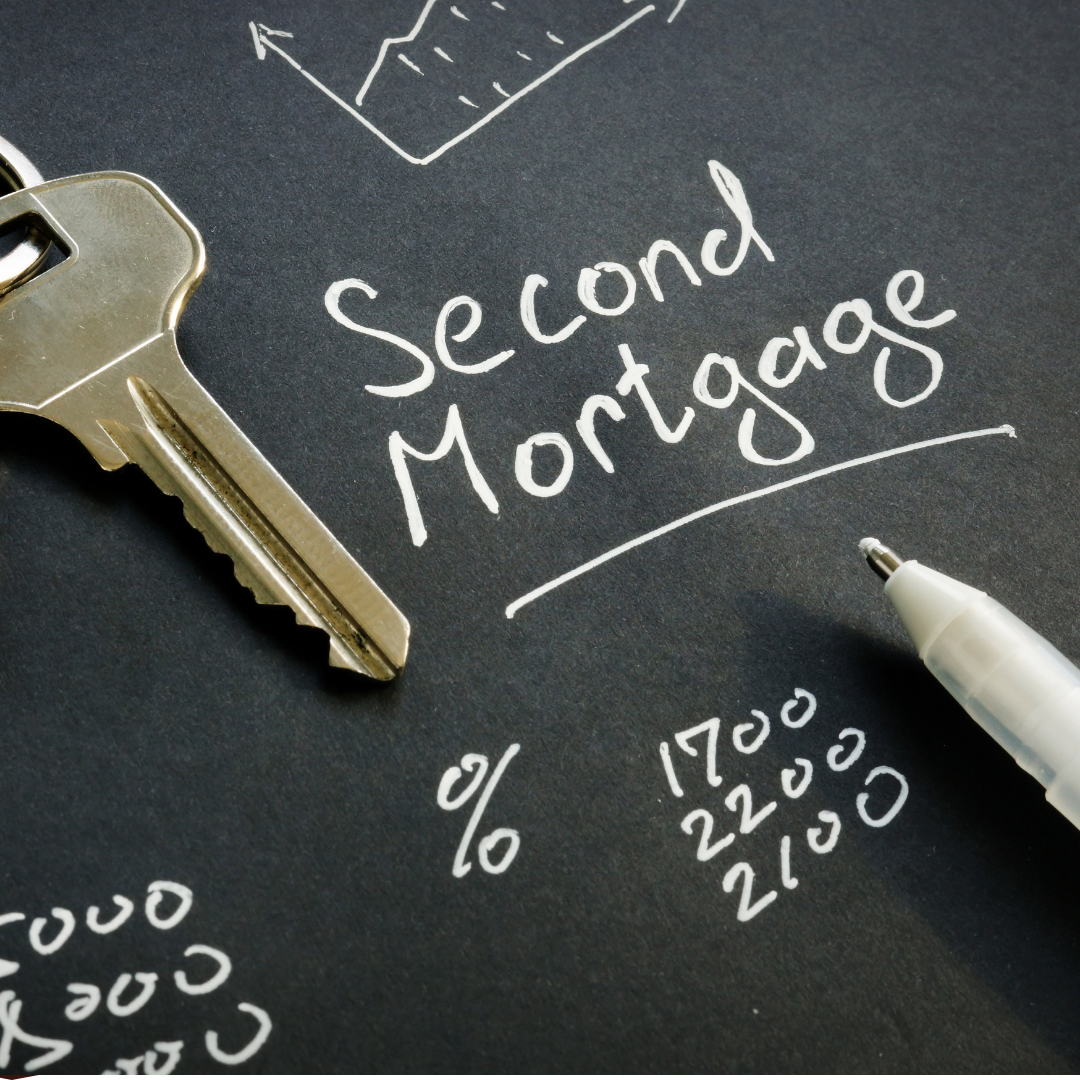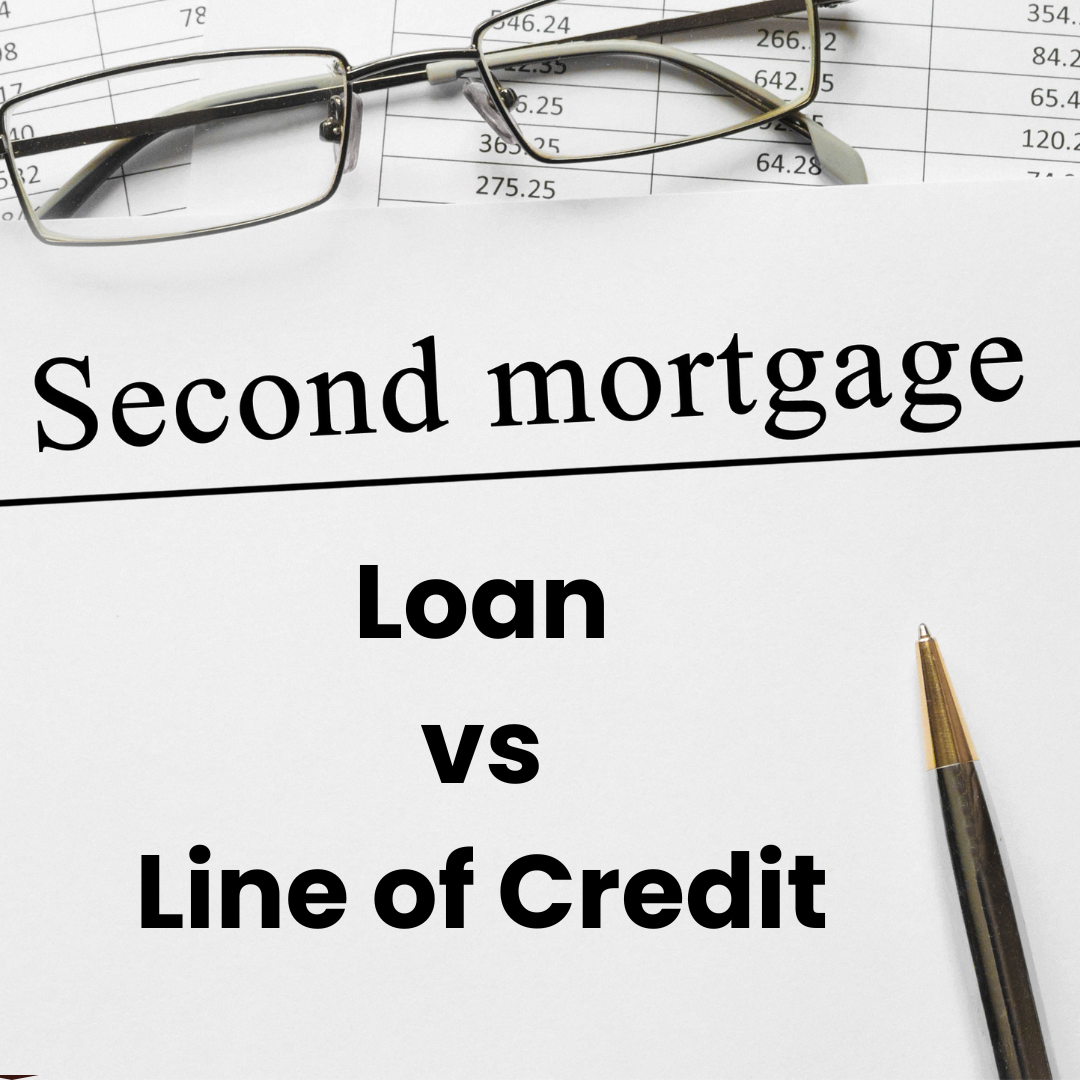What is a second mortgage?

Short Answer:
A second mortgage is a mortgage taken out after you already have a mortgage. The term "second" indicates the position this mortgage falls on the deed to the house. Subordinate mortgages (Second, third, and fourth mortgages) have less priority in the event of foreclosure or short-sale of the house to the primary aka first mortgage. Typically, subordinate mortgages are frequently known as home equity mortgages because the borrower is tapping into the equity in the house as collateral for the mortgage.
Longer Answer:
Many of my past clients are in the process of thinking about buying another property. Owning a portfolio of residential property is a goal for many people. My client's most frequently asked question is "How to get the down payment for the next property?" For many who plan on holding onto their current residence, a second mortgage may be the answer.
A second mortgage is a loan taken out against a residential property that has an existing mortgage on it. It allows homeowners the ability to tap into the equity they have in their home without refinancing the first mortgage. Second mortgages are often taken out after the purchase of a home and used to finance major expenses like home renovations, debt consolidation or to even purchase other real estate property. In some instances, a second mortgage might be taken out at the purchase of a property. Normally, a purchase second mortgage is used to reduce the down payment needed for a housing purchase or to overcome pricing differences on a first mortgage.

Types of Second Mortgages
- Home Equity Loan: This type of second mortgage provides a lump sum of money at a fixed or variable interest rate. The borrower repays the loan over a set period. Home equity loans are suitable for homeowners who need a specific amount of money for a one-time expense.
- Home Equity Line of Credit (HELOC): A HELOC functions more like a credit card. It provides a revolving line of credit that homeowners can draw from as needed; up to a specific limit. HELOCs usually have variable interest rates, which means the monthly payments can fluctuate. Typically, a HELOC has a draw period, where the borrower can use the HELOC up to the limit and pay interest-only payments. After the draw period is over, the repayment period starts. The HELOC is frozen and can't be used again and monthly payments include principal + interest payments.
Benefits of a Second Mortgage
- Access to the Equity in Your Home: Homeowners can tap into the equity of their home without touching the first mortgage.
- Lower Interest Rates: Second mortgages typically have lower interest rates compared to unsecured loans like credit cards and personal loans.
- Potential Tax Benefits: Interest paid on second mortgages may be tax-deductible, though it's important to consult a tax advisor for specifics.
Risks of a Second Mortgage
- Increased Debt: Taking on a second mortgage increases your overall debt and reduces your equity postion in your house.
- Variable Rates: For some second mortgages, the only option is a variable interest rates. This could lead to higher payments over time.
Which Second Mortgage is Right for Me?
- Home Equity Loan: This mortgage product is a better option if you have a specific one-time use for the money that will start immediately. For example, you need money to buy out another owner of the property in the next 30 to 90 days. The reason is that you will be charged interest on the full amount of the loan from day 1.
- Home Equity Line of Credit (HELOC): A HELOC is a better option if you need to tap into the equity over a period. For example, you will be adding an addition to your house that will start in 6 months and last for a year. You are able to draw from the line of credit as needs arise. Under this scenario, you would only be charged interest on what you use on the line of credit vs the full line of credit.
Conclusion
In summary, a second mortgage can be a valuable financial tool for homeowners who need access to large sums of money. A second mortgage taps into the equity built into the house as collateral for the property. There are two different options for a second mortgage: a loan or a line of credit. Which option is right for you depends upon the purpose and timeframe of when you need the money.
Have additional questions about second mortgages or tapping into the equity of your home, I am happy to answer them. Reach out to me at teamjd@mainstreethl.com
—
This blog is for informational purposes only. Make sure you understand the features associated with the loan program you choose, and that it meets your unique financial needs. Subject to Debt-to-Income and Underwriting requirements. This is not a credit decision or a commitment to lend. Eligibility is subject to completion of an application and verification of home ownership, occupancy, title, income, employment, credit, home value, collateral, and underwriting requirements. Not all programs are available in all areas. Offers may vary and are subject to change at any time without notice. Should you have any questions about the information provided, please contact me.
